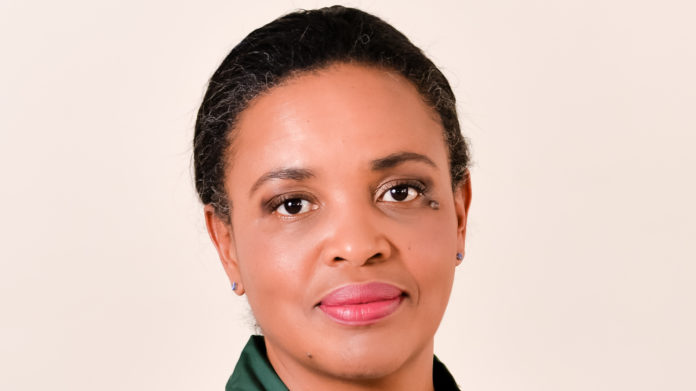
TRANSNET would not proceed with the expansion of the Waterberg coal line in South Africa’s Limpopo province beyond the currently announced six million tons a year (Mt/y) capacity.
This was one of the state-owned company’s undertakings in an effort to concentrate the allocation of capital on profit-making activities whilst overcoming the problems of rampant vandalism and theft as well as challenges posed by government red-tape.
Speaking to Miningmx for its Mining Yearbook 2021, Transnet CEO Portia Derby said the organisation understood the cyclicality of South Africa’s metals and minerals market. It was urgent business ensuring Transnet Freight Rail (TFR) responded to the rail crisis.
Exxaro Resources today rounded on TFR for the 30% decline in half year coal exports which it blamed on “… one of the worst export rail performances for the industry”. The industry lost some nine million tons (Mt) of coal exports during the first half of 2021.
That means that TFR managed to deliver on average 1.5Mt of coal per month less in the first half of 2021 than it was supposed to.
That’s equivalent to 12.8% of the 70.2Mt that the Richards Bay Coal Terminal (RBCT) exported for the whole of 2020 and makes a mockery of the hopelessly optimistic prediction made by RBCT management in January that the terminal would export 77Mt this year because of “the available capacity of TFR to rail the coal”.
Other mining companies have joined Exxaro in their criticism of Transnet including South32 and Kumba Iron Ore, the Anglo American company. For its part, Transnet said it was tackling its rail utilisation problems on a number of fronts including one investigation that sabotage by perpetrators within the organisation was behind a spate of derailments.
Funding constraints
Said Derby: “Transnet understands the upswings and downswings in commodities and that, when we can deliver those volumes, it benefits both us and the industry”.
Maintenance efforts have been hampered by procurement issues, partly as a result of post-Covid global supply bottlenecks and partly because of strict, multilayered procedures that state-owned enterprises have to follow.
“For rail, the Department of Trade, Industry, and Competition (DTIC) requires us to procure locally, but there is no local rail manufacturing capacity,” Derby says. “DTIC has now allowed us to import two years’ worth of rail, while we work towards developing local manufacturing.
“On the loco side, we needed DTIC to approve our request to import just over 1,000 components for locos.
“This required us first to do a study on local capacity to manufacture so that we could commit to a localisation percentage with DTIC. If we need a part that can only be made by General Electric, we have to get National Treasury to approve our request to procure without going out on open tender. Some of the items we need have long lead times.
“It takes time to make progress, because we have to follow the required procedures. But we have now allocated about 60% of our funding towards maintenance and dealing with backlogs on freight rail.”
Waterberg coal expansion
With limited capital resources and an urgency to deliver results, Transnet’s capital projects team is looking at all major projects, prioritising those in segments that contribute 80% of revenue, and examining how they can be completed better and faster so they can start delivering revenue.
“We see coal falling off a cliff from about 2037, so we have taken the decision to keep TFR’s coal export rail capacity at 81Mt,” Derby says.
“We will not increase the capacity on the Waterberg coal line beyond the six million tons that we have already announced. We have indicated to Botswana that we will not be extending the North-East Corridor line to the border.
“We are making good progress in our discussions with CFM of Mozambique on better aligning operations between South Africa and Maputo so we can move more chrome and magnetite through Maputo,” says Derby.
“On the Sishen/Saldanha line, we believe there are opportunities in the immediate future, once we have an air emissions licence, to export 67Mt in total of iron ore and manganese.”
For the full story as it appeared in our 2021 Mining Yearbook, please visit the special ebook section below.













